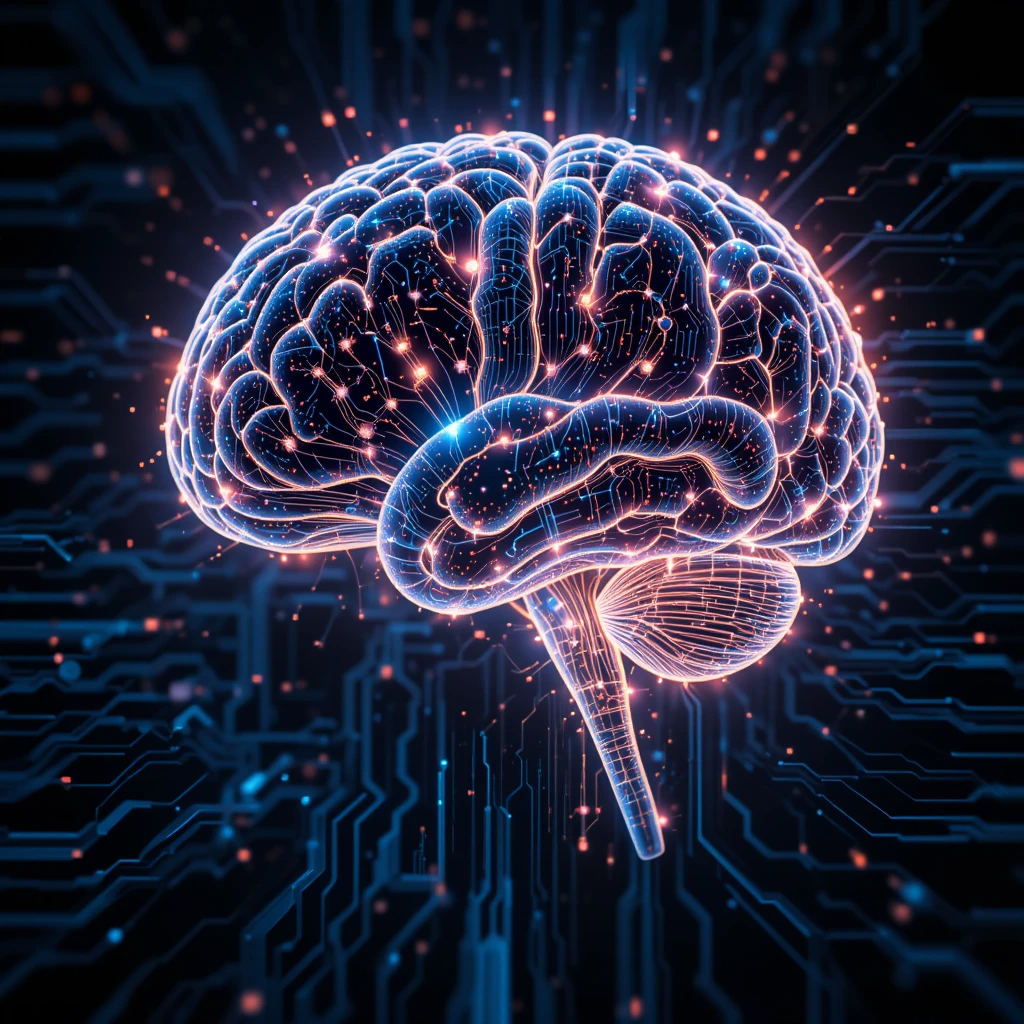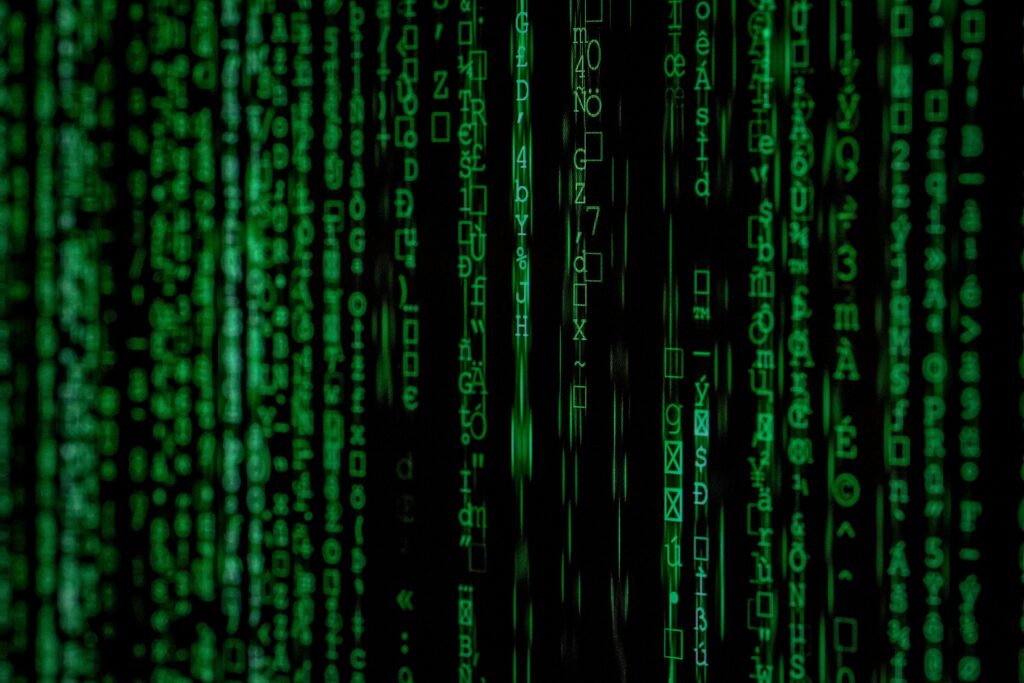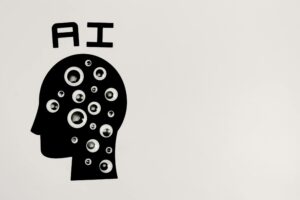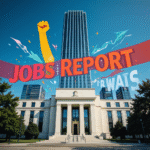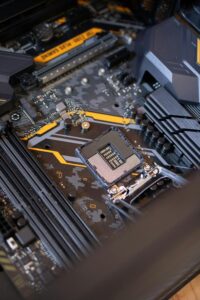The Future of Work: How AI & Automation Will Transform Jobs by 2030.
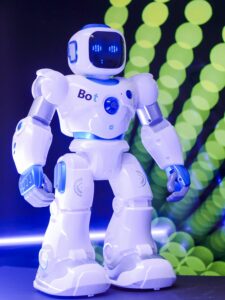
In the next decade, the global workforce will experience a massive shift, driven largely by artificial intelligence (AI) and automation. These technologies promise increased productivity and efficiency but also bring uncertainty about job security and evolving skill requirements.
In this detailed guide, we explore how AI and automation will impact the job market by 2030, industries that will be transformed, skills that will be in demand, and how workers can prepare for the future of work.
1️⃣ The Rise of Artificial Intelligence and Automation.
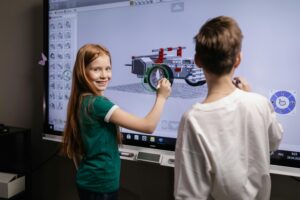
AI and automation have already begun reshaping various industries:
AI-powered chatbots are replacing customer service agents.
Autonomous vehicles threaten traditional driving jobs.
Robotic process automation (RPA) is taking over repetitive office tasks.
AI in healthcare assists doctors in diagnosis and treatment.
Machine learning algorithms optimize financial services and marketing.
By 2030, the scale of adoption will be much larger, affecting every corner of the global economy.
2️⃣ Industries Most Affected by AI & Automation.
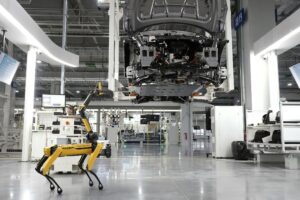
Manufacturing Robots on assembly lines will reduce manual labor.
Predictive maintenance will minimize downtime.
3D printing and automated design will change production processes.
Transportation
Autonomous trucks, delivery drones, and self-driving taxis may replace many transportation jobs.
Logistics will become hyper-efficient using AI-powered supply chains.
Retail
AI-driven inventory management will reduce waste.
Automated checkout systems will minimize cashier roles.
Personalized marketing will enhance customer experience.
Healthcare
AI diagnostic tools will assist physicians.
Robotic surgeries will become more precise.
Virtual health assistants will monitor patient health remotely.
Finance
AI-powered trading algorithms will dominate stock markets.
Automated financial planning will offer personalized advice.
Fraud detection will become more sophisticated.
3️⃣ New Job Categories Emerging
Despite fears of job loss, AI will also create many new roles:
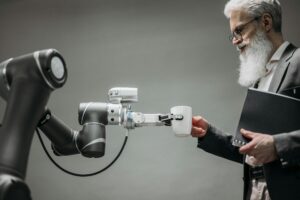
AI & Machine Learning Specialists
Building and maintaining AI systems.
Training algorithms and improving accuracy.
Ethical AI governance and bias mitigation.
Data Analysts and Scientists
Interpreting massive datasets generated by AI.
Providing actionable business insights.
Cybersecurity Experts
Protecting AI systems from cyberattacks.
Securing sensitive data and privacy.
Human-AI Collaboration Specialists
Designing interfaces where humans and AI work together.
Ensuring smooth interaction between humans and machines.
Digital Health Coaches
Supporting patients using AI-powered healthcare platforms.
Interpreting AI-generated reports for patients.
4️⃣ Jobs Least Likely to be Automated.

Not all jobs are at risk. Positions that require creativity, emotional intelligence, and human interaction are safer.
Creative Fields: Writing, design, filmmaking.
Healthcare Providers: Doctors, nurses, therapists.
Education: Teachers, trainers, and coaches.
Social Work & Counseling: Human empathy is irreplaceable.
Skilled Trades: Electricians, plumbers, carpenters.
5️⃣ Essential Skills for the Future Workforce.
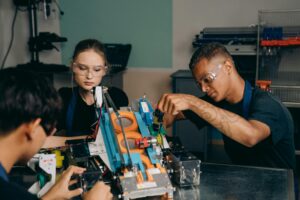
To thrive in 2030, workers will need to develop new skills:
Technical Skills
Programming and coding (Python, Java, AI frameworks)
Data analytics and visualization
Robotics engineering
Cybersecurity
Soft Skills
Critical thinking and problem-solving
Creativity and innovation
Emotional intelligence
Adaptability and resilience
Communication and leadership
Lifelong Learning
Continuous upskilling and reskilling will be essential.
Online courses, bootcamps, and micro-degrees will replace traditional education models.
6️⃣ The Role of Governments and Businesse.

Updating education systems to include AI literacy.
Providing retraining programs for displaced workers.
Establishing regulations for ethical AI use.
Businesses
Investing in employee training.
Redefining job roles to work alongside AI.
Prioritizing mental health as work-life boundaries blur.
7️⃣ Ethical Challenges in the Future of Work.

The rise of AI raises important ethical questions:
Bias and discrimination in AI algorithms.
Surveillance and privacy violations.
Income inequality due to automation.
Job displacement without proper safety nets.
Addressing these challenges will require cooperation between governments, businesses, and technology leaders.
8️⃣ Case Studies:

Companies Leading the Transformation
Amazon
Heavy investment in warehouse automation.
AI-powered recommendation engines.
Tesla
Advancing autonomous driving technology.
Robotics in manufacturing.
Google DeepMind
Developing cutting-edge AI research.
Breakthroughs in healthcare diagnostics.
IBM
AI solutions for business automation.
Ethical AI development initiatives.
9️⃣ The Psychological Impact of Automation.

While technology offers convenience, it also causes stress:
Fear of job loss.
Anxiety about constant change.
Work-life imbalance due to remote work.
Companies must prioritize employee well-being and mental health support as workplaces evolve.
🔟 Preparing for the Future Today.

Here are practical steps individuals can take:
Start learning new digital skills now.
Take online certifications in AI, data analytics, or cybersecurity.
Build soft skills like adaptability, communication, and leadership.
Stay informed about industry trends.
Network with professionals in emerging fields.
📝 Conclusion.
The future of work is not something to fear but to prepare for. AI and automation will eliminate some jobs but create many others. Those who embrace continuous learning, adaptability, and human-centered skills will thrive in the workforce of 2030.
By understanding these trends today, both workers and organizations can navigate the upcoming transformations confidently.
🔎 Frequently Asked Questions (FAQ)
Q: Will AI completely replace human jobs?
A: AI will automate many tasks but not eliminate all jobs. Many new roles will emerge that require human oversight, creativity, and emotional intelligence.
Q: What skills should I start learning now?
A: Start with data analysis, AI basics, cybersecurity, communication, and leadership skills.
Q: Will small businesses survive automation?
A: Small businesses that adopt AI tools to improve efficiency and customer experience will remain competitive.
